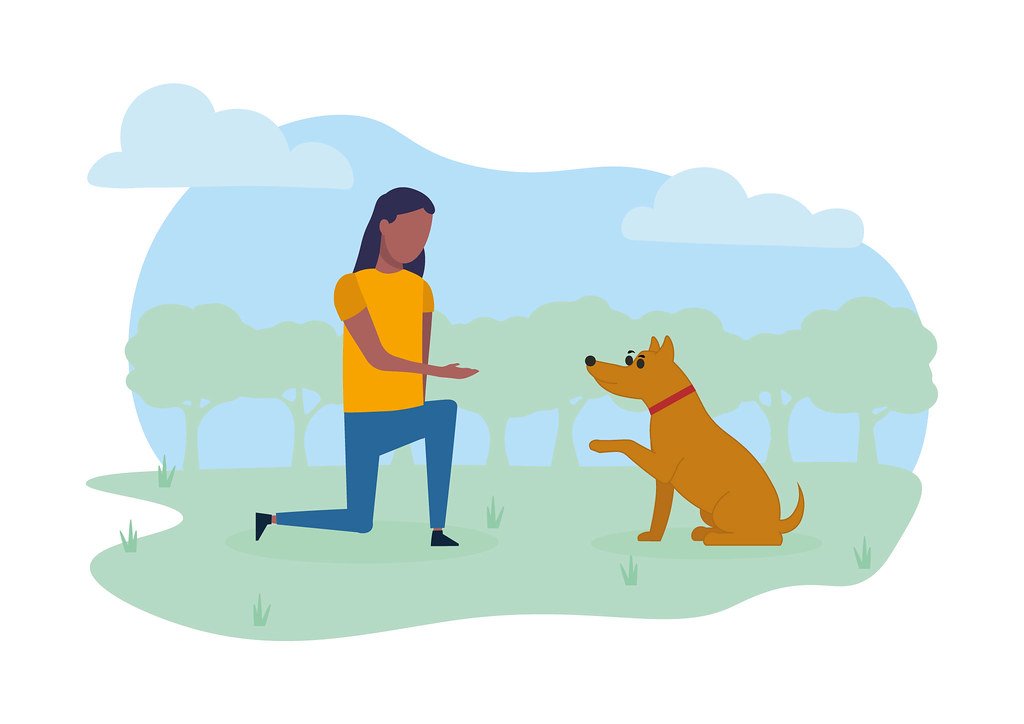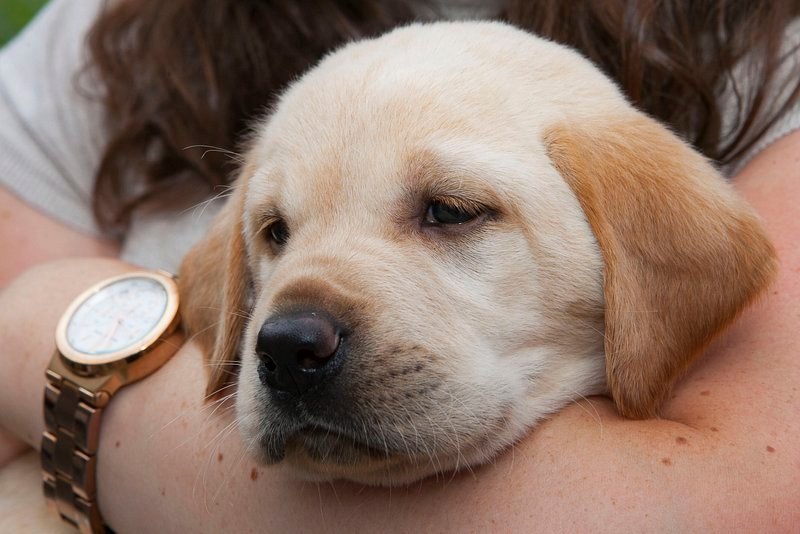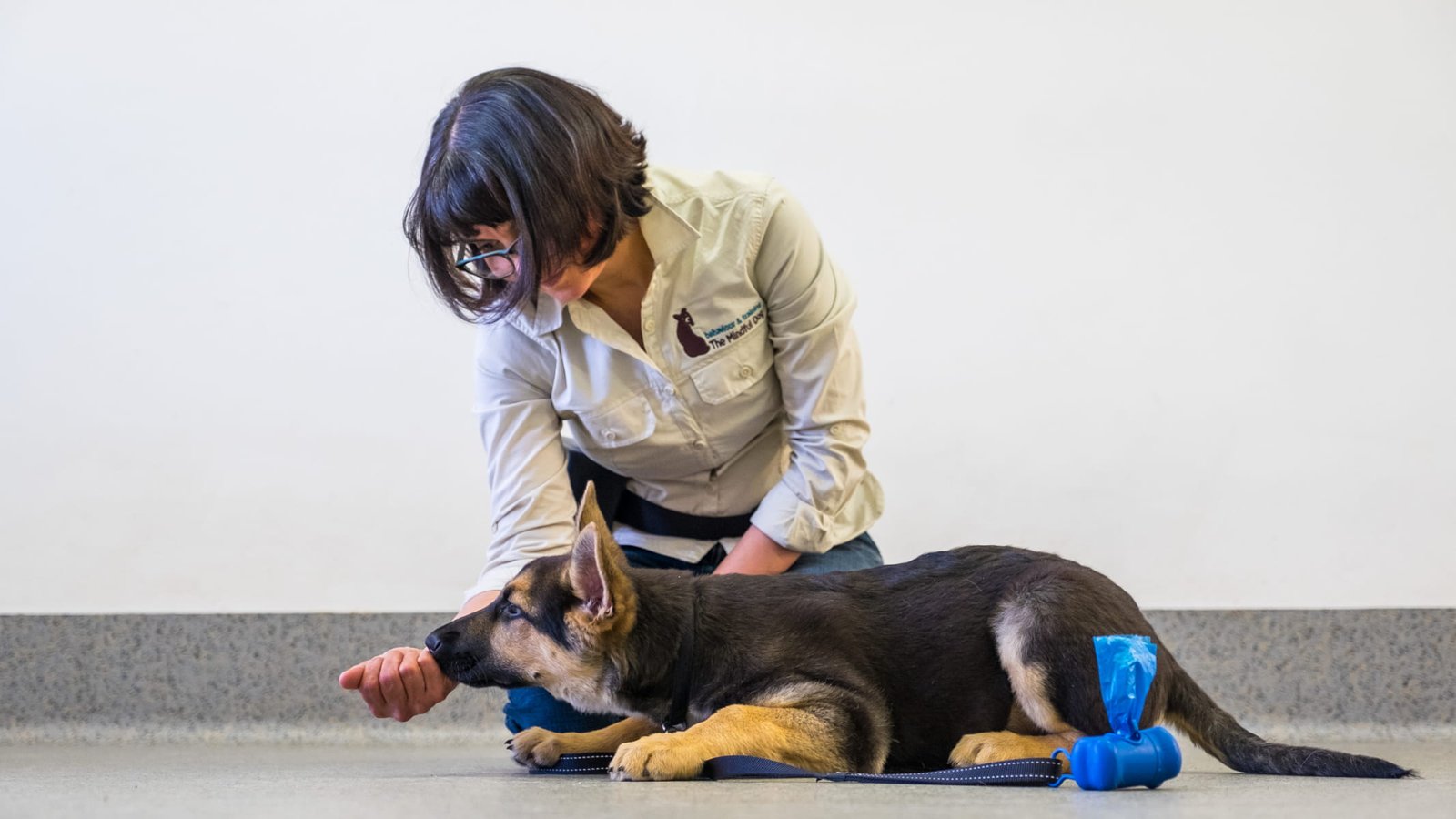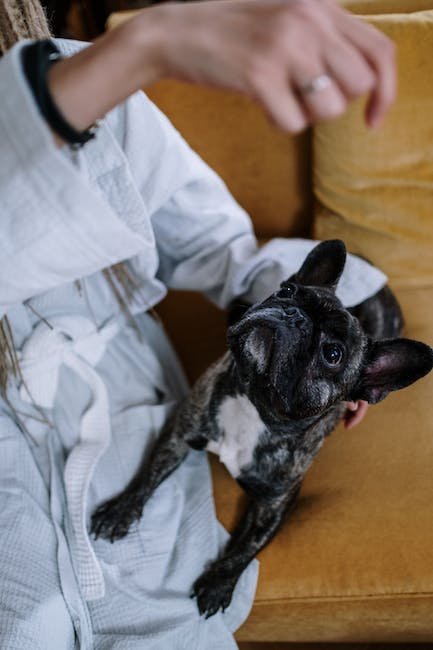When it comes to molding the perfect pup, the quest for canine excellence knows no bounds. From the moment their curious little eyes first blink open, pet parents find themselves pondering the age-old question: can you train a puppy too early? As adorable as they may be, these boundless balls of fluff come with no instruction manual, leaving us uncertain about the optimal time to kickstart their education. While some argue that starting their training before a certain age may be detrimental, others insist that an early start is key to shaping a well-behaved companion. So, let us dive into this enchanting world of puppyhood, exploring the intricate dance between age and training, to determine if there truly is an ideal window of opportunity for transforming our furry friends into the dogs of our dreams.
Table of Contents
- Training a Puppy: Striking the Right Balance
- The Importance of Early Puppy Training
- Factors to Consider when Starting Puppy Training
- Dos and Don’ts of Puppy Training in the Early Stages
- Creating a Positive Learning Experience for Your Puppy
- Q&A
- Final Thoughts

Training a Puppy: Striking the Right Balance
When it comes to training a puppy, finding the perfect balance can be a bit of a challenge. On one hand, you want to establish clear boundaries and rules to ensure your furry friend grows into a well-behaved adult dog. On the other hand, you want to create a loving and nurturing environment to help them develop into a happy and confident pooch. Striking the right balance between discipline and affection is crucial in raising a balanced and obedient pup.
Consistency is Key: Dogs thrive on routine, so sticking to a consistent training schedule is vital for success. Set aside regular time for obedience training sessions and ensure everyone in the household follows the same rules and commands. Consistency extends beyond training sessions; it applies to reinforcement, rewards, and discipline as well. By being consistent in your expectations and reactions, you’ll help your new furry companion learn quicker.
Positive Reinforcement: When teaching your puppy new skills, positive reinforcement is an incredibly effective tool. Rewarding desired behaviors with treats, praise, or playtime helps your puppy associate good behavior with positive outcomes. Remember to be patient and gentle during these training sessions, as puppies are still exploring and learning about the world around them.
Time for Fun: While establishing boundaries and enforcing rules is important, it’s equally important to give your puppy plenty of opportunities for fun and play. Engage in activities that allow your pup to burn off excess energy and bond with you. Consider taking them for walks, playing fetch in the backyard, or even socializing them with other dogs. These experiences not only provide mental and physical stimulation but also strengthen the bond between you and your four-legged friend.

The Importance of Early Puppy Training
Having a new puppy can bring an immense amount of joy and excitement into your life. However, it also comes with a great deal of responsibility. This is why early puppy training is of utmost importance.
Training your puppy from a young age will help them develop good behavior habits that will last a lifetime. It teaches them how to properly interact with humans, other animals, and their environment. Through training, they learn important skills such as leash walking, house training, and basic commands like sit, stay, and come.
By investing time and effort in early puppy training, you are setting the foundation for your puppy to become a well-behaved, obedient, and happy member of your family. Remember, puppies are like sponges, ready to absorb knowledge and eager to please. Training sessions are a wonderful opportunity for bonding, strengthening the bond between you and your furry friend.
The Benefits of Early Puppy Training
- Prevent unwanted behaviors: Early training helps your puppy understand what is expected of them, reducing the likelihood of destructive chewing, excessive barking, or aggression.
- Enhance socialization skills: Proper socialization is crucial for your puppy’s well-being. Early training exposes them to new experiences, people, and other dogs, helping them become confident and friendly.
- Promote mental stimulation: Training exercises stimulate your puppy’s mind, preventing boredom and encouraging them to make good choices in various situations.
- Ensure safety: Teaching your puppy basic commands like “come” or “leave it” can potentially save their life in dangerous situations, keeping them out of harm’s way.
In conclusion, early puppy training lays the groundwork for a well-mannered, happy, and fulfilling canine-human relationship. It not only helps shape your puppy’s behavior but also allows them to thrive socially and mentally. So, spend quality time training your adorable furry companion and reap the rewards of a lifelong companionship filled with love, respect, and understanding.

Factors to Consider when Starting Puppy Training
Training Methods:
When starting puppy training, it’s important to consider the various methods available. Some popular options include positive reinforcement, clicker training, and crate training. Positive reinforcement involves rewarding good behavior with treats or praise, while clicker training uses a clicker sound to mark desired actions. Crate training, on the other hand, focuses on teaching puppies to associate their crates with safety and comfort.
Time and Commitment:
Puppy training requires time and commitment. It’s crucial to set aside dedicated training sessions each day to work with your puppy. Consistency is key, and repetition will help reinforce what your puppy has learned. Remember, puppies have short attention spans, so keeping training sessions short and fun is essential. Be patient and understanding, as each puppy learns at their own pace.
Socialization and Exposure:
Socialization is a vital factor to consider when starting puppy training. Exposing your puppy to various environments, people, and animals will help them develop into well-rounded adults. Whether it’s visits to the park, playdates with other friendly dogs, or encounters with different sounds and objects, exposing your puppy to different stimuli will ensure they grow up confident and adaptable.

Dos and Don’ts of Puppy Training in the Early Stages
Puppies are adorable bundles of joy that bring immense love and happiness to our lives. However, they also require guidance and training to become well-behaved and balanced dogs. Here are some essential to help you pave the way for a harmonious relationship with your furry friend:
- DO: Start Early – The sooner you begin training your puppy, the better. Early socialization and basic commands lay the foundation for a well-rounded dog. Introduce them to various environments, people, and animals to build confidence and prevent fear-based behaviors later in life.
- DON’T: Use Physical Punishment – It’s crucial to remember that positive reinforcement and patience are key. Physical punishment can harm the trust between you and your puppy and may escalate behavioral issues. Focus on rewarding good behavior with treats, verbal praise, and gentle petting to create a positive training experience.
- DO: Establish Consistent Rules – Consistency is vital during puppy training. Decide on house rules and stick to them. Use clear, simple commands to teach basic obedience, such as “sit,” “stay,” and “come.” Reinforce good behavior consistently, while redirecting and discouraging unwanted behaviors.
- DON’T: Overwhelm with Training Sessions – While it’s important to be consistent, avoid overwhelming your puppy with long training sessions. Short, frequent sessions throughout the day are more effective for their short attention spans. Keep it fun, engaging, and end each session on a positive note.
- DO: Positive Socialization – Expose your puppy to a variety of people, animals, and environments in a positive manner. Encourage friendly interactions and reward appropriate behavior. This will help them grow into confident and well-behaved dogs who can enjoy various social activities.
- DON’T: Ignore Problematic Behaviors – Addressing problematic behaviors promptly is crucial. Ignoring or tolerating behaviors like biting, excessive barking, or inappropriate chewing can reinforce these negative habits. Seek guidance from a professional trainer or behaviorist to address any issues effectively.
Puppyhood is a precious time where you can shape your furry companion into a loving and obedient dog. By following these , you’ll set the stage for a lifelong bond filled with happiness, trust, and cherished memories.
Creating a Positive Learning Experience for Your Puppy
When it comes to training your puppy, creating a positive learning experience is essential for their growth and development. By implementing these tips and techniques, you can help your furry friend establish good behaviors and build a strong bond with you.
1. Consistency: Consistency is key when it comes to training your puppy. Use the same commands and techniques consistently to avoid confusion. Whether you’re teaching them to sit, stay, or fetch, be sure to use the same cues and rewards every time.
2. Positive Reinforcement: Imagine being praised and rewarded every time you did something right – wouldn’t that make learning more enjoyable? The same goes for your puppy! Use positive reinforcement techniques, such as treats, praise, and affection, to reward good behavior. This will motivate and encourage them to continue learning and following commands.
3. Patience: Training takes time, and every puppy learns at their own pace. Be patient and understanding throughout the process. Celebrate small victories and don’t get discouraged by setbacks. Remember, a positive learning experience requires both you and your puppy to enjoy the journey together.
4. Fun and Engaging Activities: Learning doesn’t always have to be serious! Incorporate fun and interactive activities into your training sessions. Use toys, games, and puzzles that challenge your puppy’s mind while keeping them entertained. This way, they’ll see training as a fun time to bond with you, rather than a chore.
5. Socialization: A positive learning experience extends beyond the training sessions. Socialize your puppy with other dogs, people, and new environments. This will help them develop confidence and proper behavior in different situations, leading to a well-rounded and well-behaved furry companion.
Remember, requires time, effort, and lots of love. Embrace the journey together and enjoy watching your little pup grow into a well-behaved and happy dog!
Q&A
Can You Train a Puppy Too Early?
Yes, it is possible to train a puppy too early. Puppies have limited attention spans and need time to properly develop physically and mentally before beginning formal training.
What is the optimal age to start training a puppy?
The optimal age to start training a puppy is around 8 to 12 weeks old. At this age, they have typically developed enough cognitive abilities and bladder control to begin learning basic commands and behaviors.
What are the risks of starting training too early?
Starting training too early can overwhelm a puppy and hinder their development. It may result in confusion, frustration, and even resistance towards future training attempts.
What kind of training is suitable for young puppies?
For young puppies, basic obedience training is suitable. Focus on teaching commands like sit, stay, and come using positive reinforcement techniques. Keep the sessions short and fun to maintain their interest.
When should more advanced training be introduced?
More advanced training should be introduced gradually as the puppy grows older. Around 4 to 6 months, when their attention span increases and they have a better understanding of basic commands, it is appropriate to move on to more complex training exercises.
How important is socialization for a young puppy?
Socialization is crucial for young puppies, as it helps them develop into well-adjusted and confident adult dogs. Exposing them to different environments, people, and animals is essential to prevent fear-based behaviors later in life.
Are there any signs that a puppy is not ready for training?
If a puppy consistently shows signs of fear, anxiety, or stress during training sessions, it may be an indicator that they are not yet ready for formal training. In such cases, it is important to consult a professional trainer to assess the situation.
What is the key to successful early puppy training?
Patience, consistency, and positive reinforcement are vital to successful early puppy training. Establish a routine, use rewards to motivate them, and always prioritize their well-being and happiness during the training process.
Final Thoughts
In the magical realm of puppyhood, where tiny paws patter across our hearts, a question arises: Can you train a puppy too early? As we journeyed through this exploration, delving into the depths of canine potential, we glimpsed a tapestry woven with wonder and curiosity. While some may debate the wisest age to commence training, let us cast aside the notions of absolutes and embark on a nuanced reflection.
As multicolored autumn leaves danced above our heads, we unearthed a waltz of perspectives within the winding pathways of puppy trainers and behavioral experts. A chorus of voices swirled, revealing that the optimal time to commence training may differ based on various factors. Does this wondrous creature belong to a sprawling family eager to learn alongside their newest member? Are they destined for a career as a trusty support companion or perhaps a canine athlete of unparalleled grace? Each trajectory bears its own unique tapestry, patiently waiting to be woven.
In the midst of our journey, we witnessed an enchanting display of early development, uncovering the sprouts of a puppy’s mind unfurling delicately. Experts whispered tales of the critical window, that pivotal period when a young pup peers at the world with wide eyes, absorbing every sensation and grasping the essence of their surroundings. As nature whispers its secrets, gently nurturing the budding soul of our furry friend, cautious training methods reserved for this tender stage help shape a future filled with discipline and companionship.
Yet, let us not disregard the symphony playing beneath the surface. Harmonizing with the wind’s gentle caress, an alternative perspective emerged, advocating a more laissez-faire approach. It entwined the notion of a puppy’s natural instincts and innate grace, suggesting that delaying the introduction of training until later stages allows them to bloom at their own pace. The pendulum, ever swinging between nurture and natural development, offered an intriguing counterbalance to consider.
As the final pages of our inquiry turned, we ventured into a realm where no definitive answers exist and whimsy dances in every step. The answer to whether one can train a puppy too early finds solace not in absolutes, but in the steady rhythm of balance. Nurture and instincts, discipline and freedom – all converge to guide us towards a harmonious companionship. Perhaps the tapestry is not woven by rigid rules, but rather by the vibrant threads of opportunity, pausing occasionally to savor each moment and adapt as we dance with our pups through life’s breathtaking wilderness.
As an affiliate, my content may feature links to products I personally use and recommend. By taking action, like subscribing or making a purchase, you’ll be supporting my work and fueling my taco cravings at the same time. Win-win, right?
Want to read more? Check out our Affiliate Disclosure page.